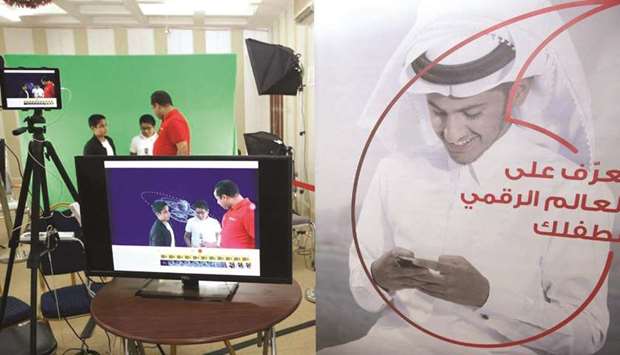Last week the Internet was ablaze with news about the “Momo Challenge”, a hoax that spread on social media reporting that children and adolescents were being enticed by a user named Momo to perform a series of dangerous tasks including violent attacks and suicide.
The initial panic was widespread across the world, and although the challenge was later reported to be fake, it showcased yet again how easy it is for children to become victims to online predators.
The Internet has changed the world as we know it.
However with all its benefits, it has also brought with it a series of disadvantages and risks to its users — from strangers impersonating someone else online, to infringement on personal information, to inappropriate content and cyberbullying.
In Qatar, a study released by North Western University last year showed that Qataris have one of the world’s highest Internet use rates with a saturation level of 95%. Vodafone Qatar’s research, conducted through its award winning digital literacy programme, AmanTECH, showed that there are children in the country spending more than 8 hours per day on screens.
These staggering statistics demonstrate that it is vital for parents to ensure that their children are well — equipped to handle any online dangers that may face them.
One way to help children with Internet safety is to use parental controls, Internet filters and content —management apps to limit their access to bad content.
However, empowering children and having open conversations with them is the first step in ensuring their online safety.
Generally, communication between parents and children is often limited to parents trying to get children off screens.
Children today have access to the digital world earlier than any other generation before them which means that having these conversations as early as possible is very important.
From teaching them about cyberbullying to alerting them about the dangers of speaking to strangers online, these steps will empower them to identify such dangers and arm the m with the knowledge that they can speak to their parents about them should they ever occur.
By increasing their digital literacy, we would enable children to access the wealth of opportunities that the Internet provides while still staying safe.
Vodafone is committed to raising digital safety awareness in Qatar.
Through it partnership with the Ministry of Transport and Communications, it has been delivering online safety workshops at primary schools since late 2017.
To date, 30 workshops have been conducted for close to 3000 students in Years 3-8, with plans to conduct 20 more before the end of 2019.
During each workshop, the children are required to perform tasks related to online safety, to learn specific skills including identifying fake news vs real, safe online gaming, and how to deal with cyber bullying and reputation online.
The impact of technology continues to mark its territory in all spheres of our lives.
While technology has been shown to have a positive impact on children’s development and their education, it’s crucial to be aware of the risks that come with it too.
This responsibility befalls on parents, children, governments and organisations.
As Qatar heads towards a true digital transformation, becoming one of the world’s most connected countries,
keeping children safe online is just as important as keeping them safe offline.
AmanTECH includes ongoing workshops, an online source for information and tips for parents accessible at www.vodafone.qa/AmanTECH.

AmanTECH conducting a school workshop.
